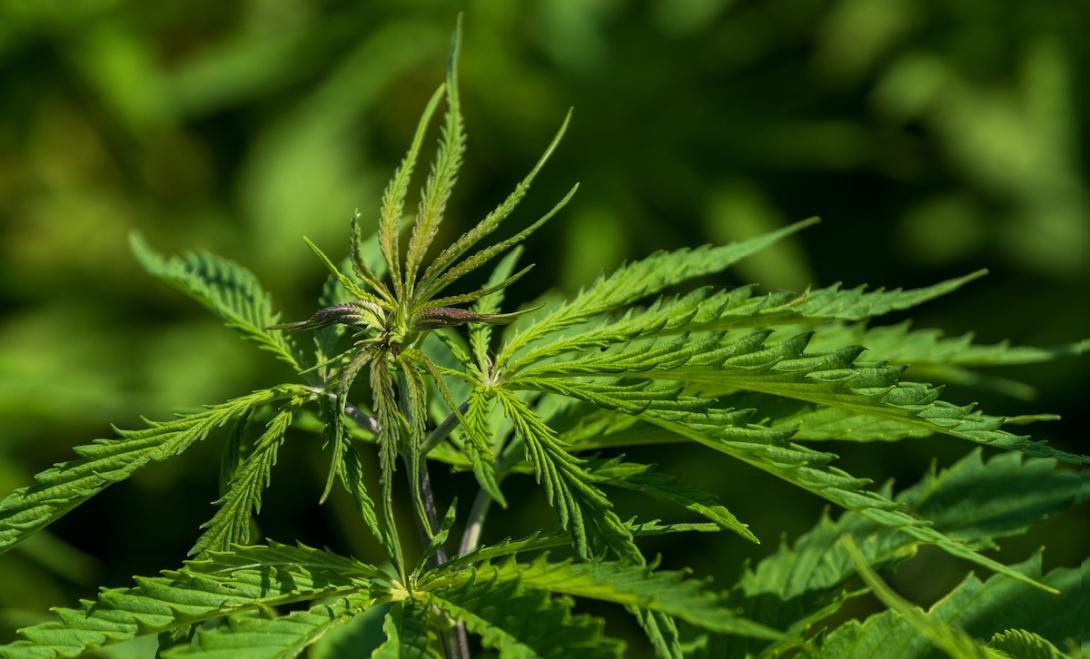
Hemp compounds could be a new line of defense against COVID-19, according to research out this week from Oregon State University.
“Our work establishes the principle that small molecules binding to the spike protein of a coronavirus can help prevent it from infecting cells,” Richard van Breemen, a professor of pharmaceutical sciences at the Linus Pauling Institute and College of Pharmacy at Oregon State University, said Wednesday.
“I think there was some controversy about that,” he added.
Van Breemen, who led the study, has been applying for grants to research this possibility since 2020, he said. A comment on one rejected grant proposal, van Breemen said, read, “This principle has never been established.”
“Now it has,” he said.
The research shows that similarly to the way in which antibodies bind to the spike protein on COVID-19, two extracts from hemp — cannabigerolic acid, or CBGA, and cannabidiolic acid, CBDA — can also bind to it and stop it from entering cells.
The implications of this research are yet to be fully determined, van Breemen said, but could mean that after a person is exposed to COVID-19 they could take these compounds orally and prevent an infection.
“If somebody has been exposed,” he said, “you’re at a meeting with a colleague who tests positive for COVID and you’ve been exposed, what do you do? Today we’re advised to go home and isolate and find out later if we get sick or not. We need an intervention then. This would be the perfect intervention.”
Researchers at OSU actually invented a tool to test the hypothesis that natural compounds could bind to the spike protein in coronaviruses. The tool helped them discover that three compounds from hemp bound in two different places to the virus.
Then, with the help of Fikadu Tafesse from Oregon Health and Science University, the team was able to test two of those compounds, CBGA and CBDA, on live virus, including the original strain of SARS-CoV-2 and two early variants.
The third compound, tetrahydrocannabinolic acid or THCA, couldn’t be tested against live virus because they were not able to get enough of it, but van Breemen believes it would also work.
The method has also been used to show that a licorice compound can also bind to the protein, which also has yet to be tested in the lab.
“These compounds were about equally effective against all three strains,” van Breemen said. “There’s the possibility that it’s also effective against omicron. We don’t know because we haven’t done that experiment.”
The two compounds were tested separately and bound to different parts of the virus, van Breemen said, leading researchers to believe they would work well if used together.
Van Breemen hopes that the team can get funding to test that hypothesis and move towards clinical trials to see if the compounds work preventively in humans.
“I’ve spent so much time these past two years writing grant applications without much traction,” he said.
He hopes now that he has proven the method works, that will change.
In terms of the practical application of van Breemen’s work, the good news he said is that these compounds are orally available, and “if one consumes them, they do reach the bloodstream.”
“That is a human experiment we don’t have to do,” he said. “We know about the safety at least of certain dosages of these compounds, historically. There are plenty of dietary supplements containing cannabinoids that are in use today.”
More study is required to determine what dosages would be required to reach the optimal blood concentration level, he said.
“I think it’s theoretically achievable with products that exist,” van Breemen said, “but we need to do the experiments to prove that.”
For people thinking of getting these compounds, which are legal, before those experiments happen, van Breemen notes that heat treatment converts CBDA into CBD, which is not useful in the same way.
“That’s also why smoking a CBDA product may not lead to much CBDA reaching the body,” he said, “because it’s going to be changed by heat.”
Third-party lab testing can show which products actually contain CBDA and CBGA.
But, van Breemen emphasized the many levels of future study he would like to do -- further lab testing, tests against additional variants, pilot clinical trials for prevention and then, he hopes, trials for treatment of active infection.
“Our goal is to find natural products like those in hemp that can be beneficial as potential new drugs,” he said.
Could this research go towards preventing infection in the group of people who still refuse to get vaccinated?
“If you can help one group of people, you’ll help everybody,” van Breemen, who is vaccinated and boosted himself, said diplomatically.
“Anything we can do to stop it, break that cycle, is really important and helpful,” he added. “So maybe this can help keep people healthy.”